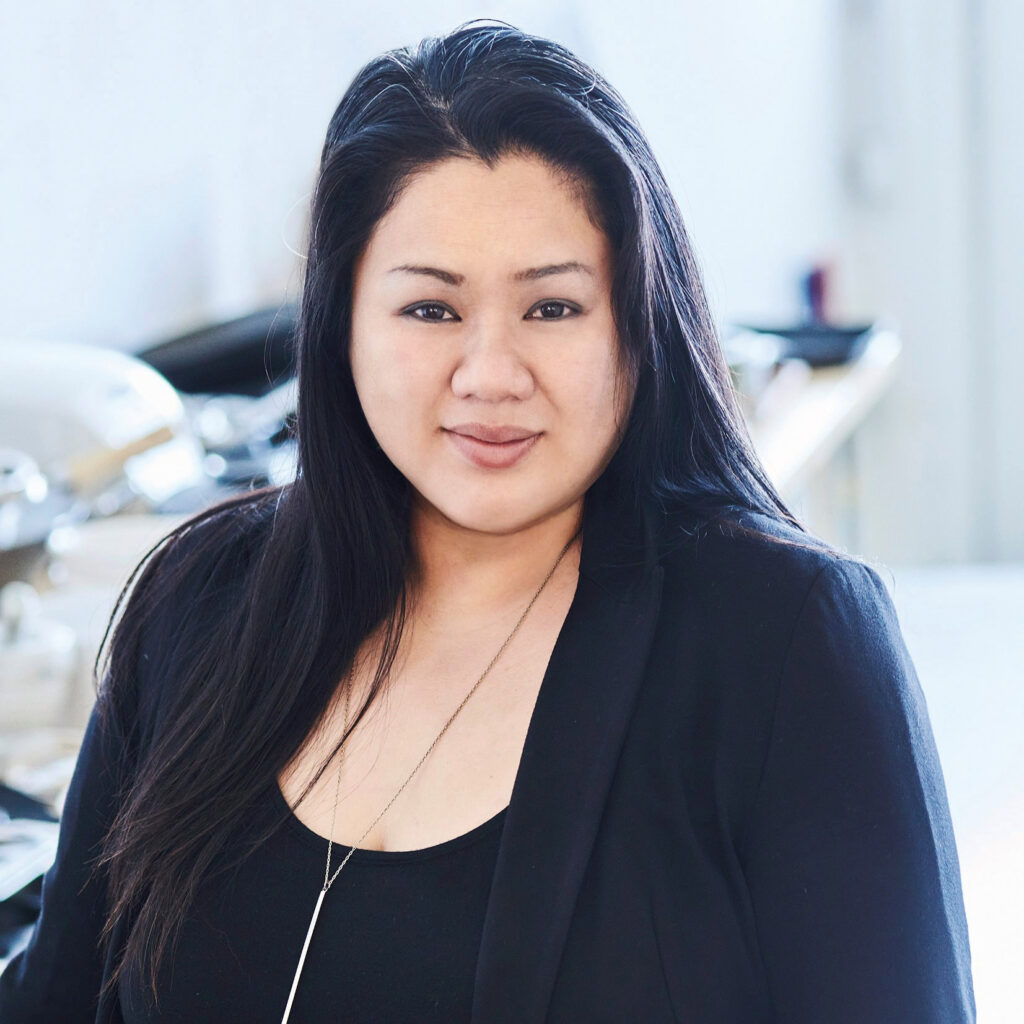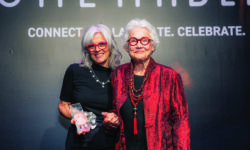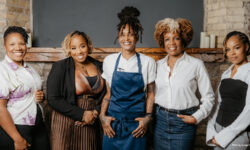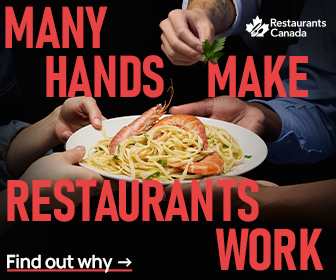Colouring Outside the Lines:

MENU Q&A with Stephanie Lui-Valentim
Co-founder of Quell, a purpose-driven talent management and consulting agency focused on amplifying underrepresented leaders in the food, drink, health, and lifestyle space.
Toronto, Ontario
MENU: What inspired you to be a part of the foodservice industry?
I’ve been connected with the food industry since I was little. There was always someone in my family who owned a restaurant where I helped to out and frequently visited—from my parents, to my uncles, to my brother, even until today. I have always been connected to food throughout my career, from HHOF to LCBO to Deloitte. So its not surprising that when we opened Quell, the core part of the business was to serve the needs of the Food & Drink industry.
MENU: Being an entrepreneur has its challenges, are there challenges specific to being a female entrepreneur? How did you overcome them?
Personally, it would be achieving a balance between work and family. This is still a work in progress and typically means very late hours to ensure I still have time for the kids before and after school until they go to bed. These boundaries are important to set but unfortunately, I still sometimes break them. Having an understanding and supportive partner is also vital to this balance. Becoming an entrepreneur was a family decision and a decision we made based on understanding what the new reality was going be for everyone.
Since the purpose of Quell is focused on breaking down the barriers and the inequities that exist in the industry, I believe there is still a lot of opportunity to do better and be better.
MENU: What do you see as the most exciting new opportunities in the industry? What are your predictions for the sector’s future?
Since the purpose of Quell is focused on breaking down the barriers and the inequities that exist in the industry, I believe there is still a lot of opportunity to do better and be better. We’ve continued to hear from our industry friends that they know and want to do better, but need guidance on where to start and how to do this sustainably and authentically. There is a noticeable shift in representation in marketing, staffing, and inclusion of value statements. But there is also so much more that can be done. I predict more organizations will start to build more purposeful DEI strategies into their business and go beyond the “cultural” and “dedicated” months and days like Black History Month, National Day for Truth and Reconciliation or Asian Heritage Month.
MENU: The pandemic created opportunities for collaborative ventures in new products/services that consumers are more open to trying. Has this created more space for female entrepreneurs? How can they take advantage of the opportunity?
The pandemic has taught us that there is no longer a “new normal.” There are long-term, seismic changes that affected everyone. One of the positive aspects is that it allowed people to slow down, think about their career and purpose, and stretch their vision of what their career could be. This meant more people leaving their sector and focusing more on passion projects and taking a leap to kick off new projects/businesses. This has now opened the door to unconventional collaborations and opportunity for all entrepreneurs to be creative and innovative to leverage these changes.
MENU: What has been the most difficult obstacle to overcome? Does the obstacle still exist for entrepreneurs?
One of the most difficult obstacles as an entrepreneur is to switch from leading teams to being the whole team. Especially at the beginning when you decide to make the leap, you must be ready to wear every hat and tackle all tasks—even those that are unknown. Yes, this is an obstacle that still exists and a humbling experience that most entrepreneurs will need to experience.
MENU: What mistake have you learned the most from?
It took some time and meaningful conversations to really understand my true value, knowing my worth and building my confidence to ask for fees that reflected my value—impostor syndrome is real. In addition, being able to recognize when to say “no” and being comfortable with that decision. This is all part of the growth, and since I was representing 13 individuals, I was able to adapt to this mindset quickly.
MENU: Can you describe the moment you knew you were going to be successful in this field?
For the first few months of Quell, I spent my time introducing clients to our mission, vision, and the roster of talent, without the intention of booking something instantly. It was when these same clients started calling back months later with work, that I realized we have something meaningful and impactful that clients cared about. If we had to identify a moment, I would say it was after completing our work with Health Canada, as we realized we created a business that really can make change in this industry (and beyond).
MENU: What should the next wave of new entrepreneurs know about starting their own business?
I truly believe in the need to have meaningful purpose when you’re building a business. Quell dedicated three months to research the “problem,” the competition, the business model, the target audience and build our “DNA.” I speak a lot about human-centred design and ensuring that your product/service is not just viable and feasible, but also “desirable.” I encourage new entrepreneurs to dedicate time to do the homework and look deep into how their product/service is bettering this world and its people.
Interested in learning more about Quell? Visit quellnow.com









